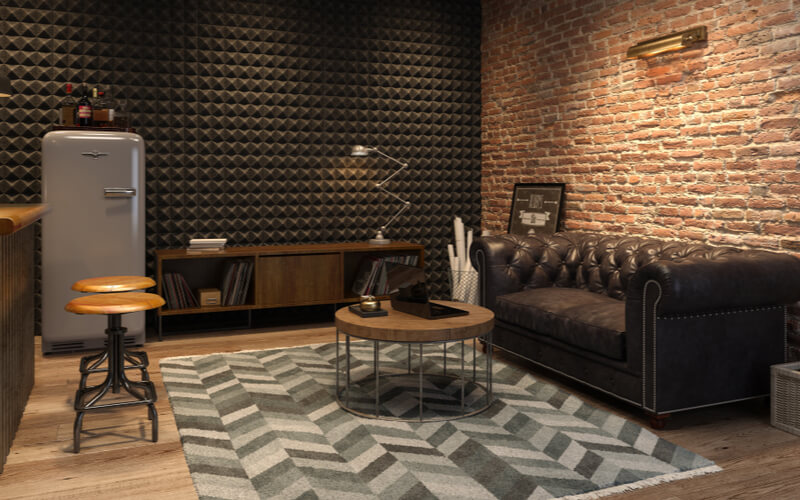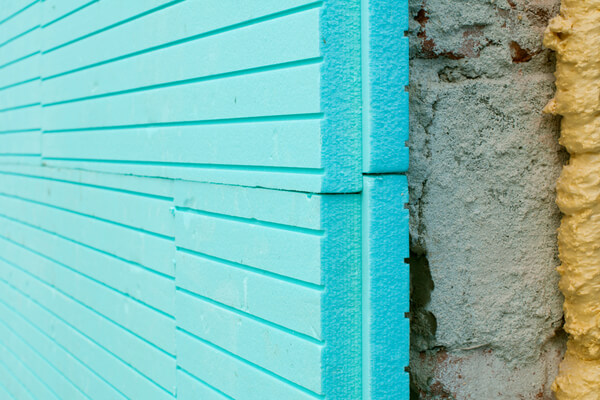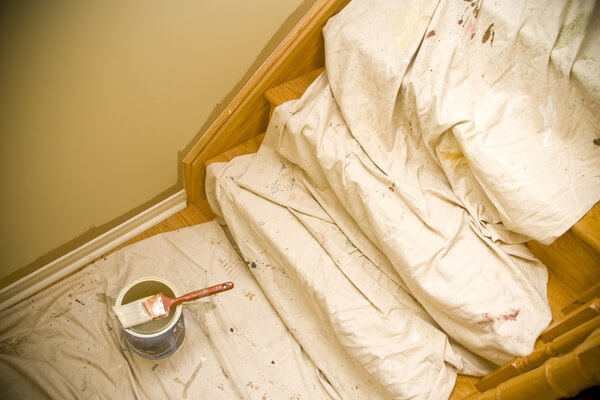Whether you should or should not soundproof your basement is a topic of discussion amongst many Canadian families. If you use your basement just for storage purposes or treat it as just an extra room in the house, you may not need to soundproof it. But if your basement is also your home office, or if you use it as an entertainment room (games and home theatre) or your kid wants to practice playing music, you should consider getting it soundproofed. But soundproofing can be pretty expensive. That’s why we came up with these 5 cheapest ways you can soundproof your basement without drilling a hole through your pockets.
1. Acoustic Insulation
Acoustic insulation is the go-to option for many homeowners when they plan to soundproof their house. Based on the material used in this project, acoustic insulation may not completely eliminate the transmission of sounds but it does help to reduce it effectively. The best way to achieve maximum results is by adding insulation panels between interior walls and ceilings. If you have constructed wooden walls, you can cover them with padded foam panels and cover wall cavities. Choosing the right panels and materials for insulation should be done under the guidance of an expert. A local insulation pro can help you with this project from start to end.
2. Green Glue
Green glue is popularly used as a sealant to cover cracks and gaps on ceilings and walls. You can use green glue around your drywall for maximum effect. Green glue sealant is added in between two drywalls to stop sound and vibrations from travelling from one room to the other. As green glue is eco-friendly and non-hazardous, it has become quite a popular choice for homeowners doing their home renovations. However for the green glue to take effect properly, it is important that you hire a professional to use it. Improper use of the glue can render its effects useless.
3. Soundproofing Paint
Using soundproofing paint may sound like a good theory on paper that may never work but it’s not entirely true. If used with all the other soundproofing materials mentioned in this article, soundproofing paint can really be helpful. Soundproofing paint is made of latex which sends the sound waves back to their source instead of absorbing the sound. You can do two or three coats of this paint on your basement ceiling to reduce the sound transmitting from the floor above. Get in touch with a local painter to learn more about soundproofing paint.
4. Strong Drywall Sealing
Sealing up your drywalls of any gaps, cracks or hollows will highly reduce the intensity of sound travel. Many basement ceilings have huge gaps between the floorboard from the floor above. You can use heavy insulation or caulking to seal the gaps. You can also use a high-quality latex primer-sealer and paint for drywall sealing. For a better understanding of drywall sealing, get in touch with a drywall contractor.
5. Thick Carpet or Mats on the Floor Above

Picture Courtesy: Beatnik & Mod Design and Interiors
The most creative and cheapest way to reduce the noise coming into your basement is by installing thick carpet or mats on the floor above. You can add a furry carpet in your living room and a waterproof thick carpet in the kitchen. You can also choose to add some mass-loaded vinyl flooring to the gaps of your floorboard and basement ceiling if you already have carpets on your floors.
Soundproofing your basement has many benefits but can be a time-consuming project. You can easily get overwhelmed by the number of options you have in front of you. The best way to get this project done is by hiring a local basement renovator for the job. On HomeStars you can hire a pro based on their Verified badge status, Star Score, winning status of the yearly HomeStars Best of Awards and recent reviews written by community members.


